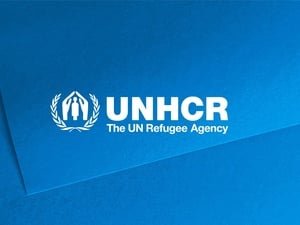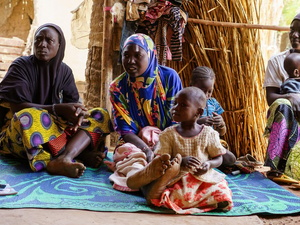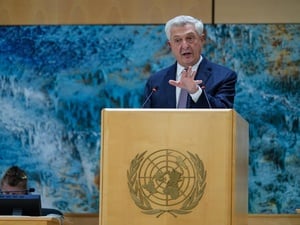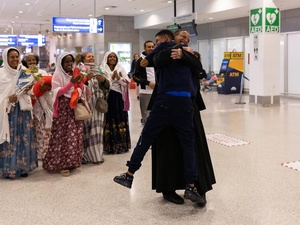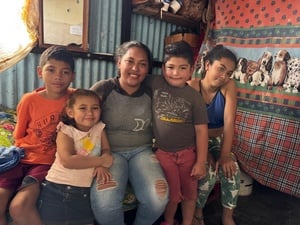Social media campaign tackles misinformation about treacherous Darién jungle
Social media campaign tackles misinformation about treacherous Darién jungle

Orlando rests at a reception centre in Panama after crossing the Darién jungle with his 9-year-old daughter.
“At first, I didn’t see it as risky … but then we started to see a lot of crazy things. Many mountains, many hills … I started to see dead people, all kinds of things,” she says. “Many people lose their lives there.”
While she rests, her husband tries to clean the mud from her sneakers with a toothbrush. The couple fled political and economic instability in Venezuela. The rest of their family stayed behind, awaiting news of their journey before deciding whether to follow.
Thousands of refugees fleeing violence and persecution and migrants seeking a better life tackle the crossing through the Darién every week. In 2023, over 520,000 people, mainly from Venezuela, Ecuador, Haiti, and African and South Asian nations, undertook the journey. So far, in 2024, the number has already reached 279,000.
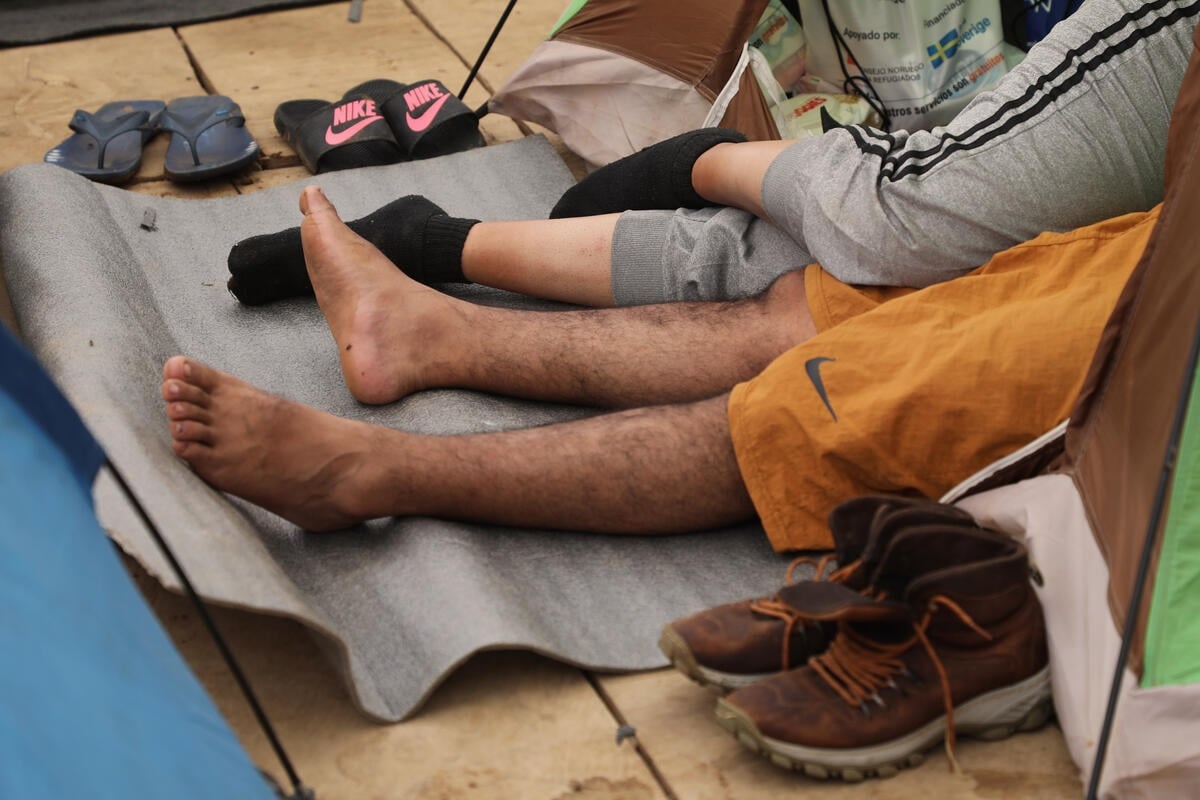
A couple rest in a tent after crossing the Darién, a journey that can take between four and 10 days.
After being promised a short and uncomplicated passage through the jungle by smugglers and information on social media, refugees and migrants typically spend between four and 10 days navigating steep mountains, thick forest, and rivers with strong currents. They must carry all their personal belongings, and often small children, in intense heat and humidity before arriving in indigenous Panamanian communities and eventually reaching the Temporary Migratory Reception Centres managed by the Panamanian Government.
Sharing real stories
Having already fled or left their countries due to difficult situations, the jungle exposes refugees and migrants to additional risks of violence and abuse. In interviews, 38 per cent of people who made the crossing reported suffering an incident of abuse in the jungle, and seven out of 10 had been victims of theft, including Ayaluz and her husband.
“We were robbed,” she says. “They took everything from us.”
Surveys carried out by UNHCR, the UN Refugee Agency, found that some 70 per cent of people arriving in the Darién were relying on information gleaned from social media platforms that often downplays or mispresents the risks of the journey.
“On Facebook there are people who make pages recommending themselves as guides. What they really do is deceive us; they trick us into doing it," says Ayaluz, explaining that based on what they read on social media, she and her husband sold all their belongings to fund the journey, without understanding the dangers.
Recognizing the need to challenge misinformation about the Darién, UNHCR developed its own social media campaign, ‘Trust the Toucan’, in 2023. It shares crucial information and video testimonies on Facebook and TikTok in Spanish, English and Haitian Creole with the aim of reaching refugees and migrants in the region, mainly in Colombia, Ecuador, Peru, and Venezuela, before they make the decision to cross the jungle.
“Information saves lives, and through 'Trust the Toucan', UNHCR not only provides an accurate portrayal of the jungle’s dangers, but also actively takes up space in the same online platforms where misinformation spreads, so refugees and migrants can make informed decisions,” says Jose Egas, Representative for UNHCR in Panama, noting that the campaign has been viewed more than 26 million times.
Two-way communication
‘The Toucan’ posts interviews with refugees and migrants, like Orlando, who recently made the crossing with 27 kilos of food, water and clothes strapped to his back, and his 9-year-old daughter by his side. Although he had heard stories and expected the journey to be difficult, he was unprepared for the reality.
“The guides told us that in a day and a half we would get out of the jungle, which is totally false… There was a moment when I felt faint because I thought I would never get out. We walked and walked, and the jungle seemed endless,” he says. “People fracture their feet, ankles. After one sustains an injury in the jungle … it’s fatal.”
During the journey, his group rescued a woman who had been abandoned with her two children as they struggled to keep up with the physical demands of a path where one wrong step could result in injury or death.
Had he known the real dangers, Orlando says he would not have risked the lives of his family in his pursuit of a better life.
As well as sharing testimonies like these, ‘The Toucan’ also allows refugees and migrants to send messages to UNHCR via TikTok, Facebook and WhatsApp. They can verify stories and information shared by friends and relatives, seek guidance on applying for asylum in Panama, or even raise the alarm about relatives who have gone missing in the jungle.
In a video received through WhatsApp earlier this year, UNHCR found out about a 36-year-old woman with a broken leg who had already spent four days in a tent with her two small children. A passing group sent the message with information about a nearby natural landmark to help locate where she was stranded. UNHCR shared the recording with Panamanian authorities, and she was rescued a couple of days later.
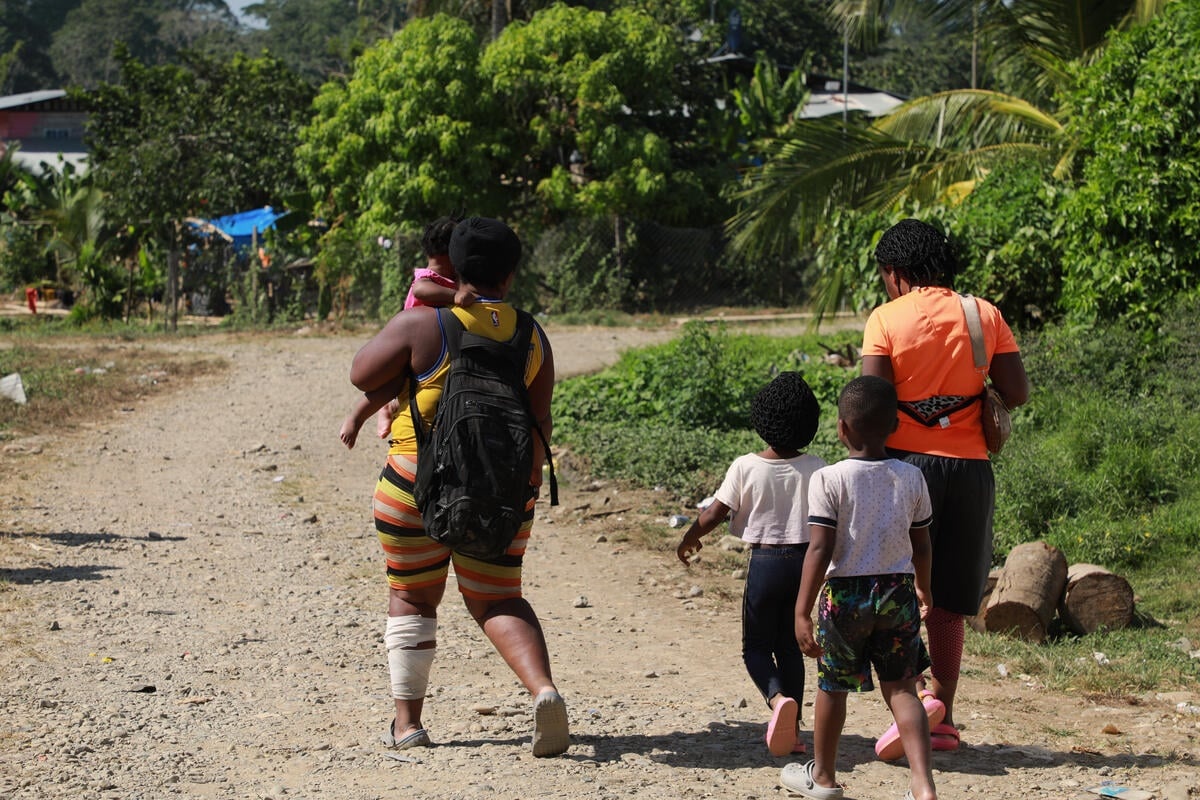
Many refugees and migrants travel through the Darién with small children after being misled by social media posts.
“You destroy yourself, thinking that maybe you’ll be able to get ahead. That it will be better than in Ecuador, but it’s not worth it; it’s a lot of suffering,” says Carmen*, 61, through tears. In Ecuador, she worked as a seamstress until gangs threatened her, demanding a share of her earnings. While crossing the jungle with her daughter, nieces, and nephews, she and her family spent days without food. They drank water from rivers, which left them weak with fever and stomach issues.
Like Ayaluz and Rodrigo, she hopes that by sharing her story through ‘Trust the Toucan’, she can help others understand the risks of the crossing.
“It’s a pain that lasts a lifetime, and I regret that I came this way.”
*Name changed for protection reasons.


